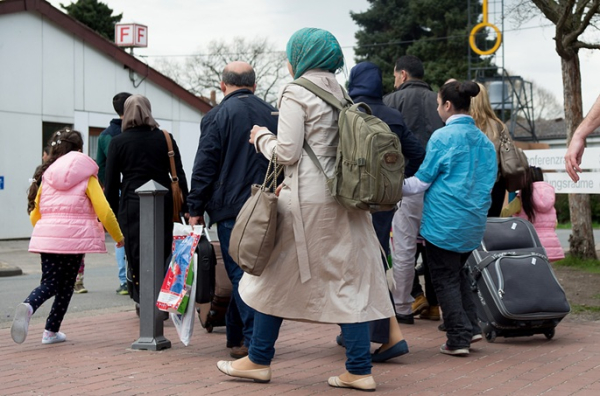Germany softens rules for migrants on labelling ‘safe countries of origin’

The German government on Wednesday backed a bill to simplify the process of determining "safe countries of origin" for migrants, a move that could limit asylum applications as the new administration intensifies its crackdown on migration, reported dpa.
The measure was approved by Chancellor Friedrich Merz's Cabinet, enabling the government to make decisions in future on which countries are listed as safe.
Currently, the categorization must be approved by the Bundesrat, the German upper house of parliament.
Under German asylum law, "safe countries of origin" are seen as those where people are not subject to political persecution or inhuman punishment.
Migrants from those countries are unlikely to see their applications for asylum approved, apart from in exceptional cases.
In addition, deportations back to safe countries face fewer legal obstacles.
The reform must still be approved by the lower house of parliament, the Bundestag.
Germany's new government has pledged to tackle irregular migration as one of its main priorities.
Interior Minister Alexander Dobrindt said the new rules were intended to spark an "asylum turnaround," as he answered questions from lawmakers on the parliamentary committee for internal affairs on Wednesday.
Germany's neighbours have generally responded positively to the change of course, he claimed, despite past criticism from countries including Poland over Dobrindt's decision to allow police to turn back asylum seekers at the border.
Lawmakers from the opposition The Left party and the Greens criticized Dobrindt for addressing the press first before facing the committee.
The coalition agreement between Merz's conservative bloc and the centre-left Social Democrats set out that India, Algeria, Morocco and Tunisia should be categorized as safe countries of origin first.
The label currently applies to EU member states and a short list of other countries.
In Eastern Europe, Albania, Bosnia-Herzegovina, Kosovo, North Macedonia, Serbia, Georgia and Moldova are all deemed safe, along with Senegal and Ghana in western Africa.
Green lawmaker Filiz Polat criticized the Cabinet decision, arguing that the classification of safe countries of origin is not an administrative act, but an encroachment on individual protection rights. "Anyone who acts in this way is shaking the foundations of our rule of law."
Cabinet also approved a new provision, according to which people affected by detention pending deportation are no longer to be given a state-appointed lawyer, a requirement that was only introduced under the previous centre-left coalition government.
It also applies to asylum seekers who are to be transferred to another EU country under the Dublin rules, which stipulate that in general the country a refugee first enters is responsible for processing their application for asylum.
Legal setback on asylum policy sparks concern
Meanwhile, German police said they are concerned that border officers might face legal problems after a court blocked the government's efforts to turn away asylum seekers at the country's borders.
Shortly after taking office last month, Dobrindt ordered police to step up border checks and turn back irregular migrants, even if they apply for asylum.
In the first case to emerge over the controversial move, the Berlin Administrative Court ruled on Monday in favour of three Somalis who were turned back to Poland on May 9, stating that they should have been processed under the European Union's Dublin Regulation for asylum cases.
Chancellor Friedrich Merz has defended the policy in light of the ruling. But the chairman of the GdP police union, Andreas Rosskopf, on Wednesday said he was worried about what consequences the court decision would have for officers who continue to turn back people at the border.
"Of course, it is an individual case decision for now, but it remains to be said that these are cases that we face every day and therefore there is now a certain amount of uncertainty among colleagues," he told public broadcaster WDR.
Police officers are ultimately responsible for their own actions and must answer for them, the union chief noted.
Dobrindt had dismissed concerns that officers could be prosecuted for their actions as "completely absurd" in earlier comments to public broadcaster ARD.
But Rosskopf said he "actually had to disagree to a certain extent."
While the minister was right in arguing that police officers were subject to clear instructions in the matter, Rosskopf said: "If it were clear and is clear that this instruction is ultimately unlawful, then police officers must fulfil so-called remonstration duties," meaning they would have to explicitly criticize the order in order to avoid legal responsibility.
"We need a written clarification that colleagues are clearly acting on instructions in this uncertain situation and cannot be held personally liable for their actions following legal proceedings in this matter," the union boss explained.
(By Anne-Béatrice Clasmann and Christoph Driessen)
Source: www.dailyfinland.fi
